Discussion over lunch in the House of Lords
Chair – Professor the Lord Broers
Speakers:
• Paul Stein – Chief Technology Officer, Rolls Royce.
• Andrew Cockcroft – Senior Manager – Community Relations, EDF
• Karen Wheeler – Chief Executive Officer, Radioactive Waste Management (RWM)
Lord Broers began the meeting by thanking everyone for attending and introduced the first of the distinguished speakers, Paul Stein, Chief Technology Officer, Rolls Royce.
Paul Stein
Paul Stein is responsible for Rolls Royce’s technology investment, ensuring close alignment with business strategy. His previous roles at Rolls Royce include Chief Scientific Officer, a role he had held between 2010 and 2016, and Director of Research and Technology from 2016 – 2017. He is also on the board of Energy Technologies Institute LLP.
Paul began his remarks by stating that renewable energy sources like wind and solar can only play part of a role in reaching net zero. At present, these intermittent renewables cannot be stored at the capacity needed to ensure that there is sufficient energy available to the grid. Thanks to small modular reactor’s (SMR’s), the cost of producing nuclear energy has reduced. This cost is only likely to reduce further as investment into manufacturing tech increases. It is not possible to rely solely on intermittent renewables and therefore investment and acceptance of nuclear energy is key.
Paul further commented on the need for clean energy to power electric vehicles (EVs) and other forms of non-combustible transport. As we get closer to 2030 and the ban on the sale of combustible vehicles, the need for EV charging points is only going to increase. It is estimated that the UK will need an additional 20Gw capacity to meet the future EV demand.
Lord Broers then welcomed the second distinguished speaker, Andrew Cockcroft, Senior Manager – Community Relations, EDF.
Andrew Cockcroft
Andrew Cockcroft is responsible for ensuring that Hinkley Point C continues to work collaboratively with external partners to maximise the social and economic opportunities of a such a large project. With an academic background in sustainability and energy policy, Andrew has been part of the Hinkley Point C project for over a decade – initially working as part of the team developing the planning application that provided the go-ahead for the first new nuclear power station in a generation.
Andrew opened his remarks by stating that there are three core reasons in favour of nuclear power.
- The social argument is rooted in the need for upskilling the next generation in order to secure a green future. This issue is not going to be solved by one generation of engineers. At Hinkley Point, there has been a £16million investment in new training facilities to ensure that the necessary training can take place.
- There is also an economic argument for nuclear power. Not only is energy cheap and clean, but investment at Hinkley Point currently supports 22,000 jobs across the UK. There has also been a £4.1billion direct spend with local businesses and this figure will only increase as the project continues.
- The environmental argument for nuclear is clear. The production of low carbon energy is vital for the UK to achieve its 2050 net zero ambitions. New nuclear reactors are under construction right now; it is more reliable that intermittent renewables like wind and solar and as environmentally friendly (as confirmed by recent life cycle carbon analysis). At Hinkley Point, the project is beginning to move into the mechanical and electrical installation phase. It is anticipated that it will be 5 years before the site becomes fully operational and begins to produce power for the grid.
Lord Broers then welcomed the final distinguished speaker, Karen Wheeler, Chief Executive Officer, Radioactive Waste Management (RWM)
Karen Wheeler
RWM, as part of the Nuclear Decommissioning Authority group, is leading the way for the safe, secure, long-term management of the most hazardous radioactive waste in the UK.
Karen’s previous roles include working as Director General of the Border Delivery Group, leading the border planning for EU exit, and NHS England’s National Director for Transformation and Corporate Operations, as well as leading major change and infrastructure projects in the Ministry of Justice – so she is used to embracing important and complex challenges.
Karen is leading the geological disposal project solution to deal with the by-products of nuclear energy: radioactive waste. In the 60 years that nuclear technology has been available globally, there have been no permanent solutions for managing highly radioactive waste. Currently, most toxic waste is stored above ground.
Geological disposal is the long-term solution for waste. Finland’s geological disposal facility is due to start operations in 2024; France, Canada and Sweden are also well underway with their respective Geological disposal programmes. There is a large quantity of legacy highly radioactive waste from decommissioning previous nuclear facilities; 750,000 cubic metres, which is a similar size to Big Ben cubed. It will take hundreds and thousands of years for some of this radioactive waste to decay to a safe state. This waste will be disposed of in a highly engineered facility between 500m – 1km below ground. Now we have made progress in identifying some “willing communities” prepared to consider hosting a GDF, , it will take 30 years to test the suitability of potential sites, and to design and construct a facility deep underground site for the waste, and a further 100 years at least to place all of the waste. The GDF programme has very considerable benefits for the local community that will host it, and will create between 800 and 2000 jobs, which will last over the lifetime of the programme.
Questions and Answers
Q1 – Dr David Boyce
Question – Many of these projects will span different governments and therefore different political agendas. How vulnerable are these projects to a change in government direction?
Answer – Andrew Cockcroft
Andrew noted that since the Hinkley project was given the green light in 2010, for 5 years the project has remained within the planning process. However, politically there is a realisation of the need for nuclear power. Any risks associated with nuclear power are mitigated by the need for clean energy and the potential catastrophic affects of climate change.
Answer – Paul Stein
Paul noted that many of the programmes are now international and would continue to be worked on should the Government change its mind on nuclear energy. It is now a truly international enterprise comprising engineers from all over the world. Paul quoted Exelon, who run 100 global power stations.
Q2 – Wahid Fakry
Question – What is the UK regulatory framework and how will it help to innovate, as SMR’s are not the endgame.
Answer – Paul Stein
UK regulators are amongst the toughest in the world, which is beneficial as almost all other countries accept certification from regulators. In order for technology to be robust in the long-term, there must be a strong case that the technology is safe.
Answer – Andrew Cockcroft
SMR’s, just like larger nuclear power stations, are a large design and are therefore subject to a strong design assessment regulator – the GDA. One of the benefits of the UK regulatory regime is the scope it allows for learning.
Answer – Karen Wheeler
Karen noted that all sites are closely regulated, and that a positive relationship with regulators is vital to public confidence. Geological Disposal Facilities (GDF) are one of a kind and as such, require international co-operation. International collaboration is vital to ensure any project is successful.
Q3 – Chi Onwurah MP
Question – Certain political parties argue that the UK can achieve its net zero targets without the need for nuclear energy. How can I make a convincing argument that nuclear needs to be part of the solution to achieving net zero?
Answer – Andrew Cockcroft
The biggest argument in favour of nuclear energy is the energy security that it brings. Intermittent renewables, for example, do not provide this level of security as the sun doesn’t always shine and the wind doesn’t always blow. Nuclear is a proven and reliable method of producing electricity at all times of the year.
Answer – Paul Stein
The storage of renewables like wind and solar are very expensive and the technology is not yet ready to store it at required capacities. This is where the economics of net zero come into play, as well as the short time scale to reach the UK’s climate ambitions. The Department of Business, Energy and Industrial Strategy (BEIS) currently use University College London’s (UCL) model to determine the UK’s energy needs and grid capacity.
Q4 – Maddie Connor
Question – Is nuclear power the long-term answer once we have reached net zero? It seems as though this is just another short-term solution and some of the by-products could have lasting global implications in the future.
Answer – Karen Wheeler
It is important to reassure people regarding the safety of nuclear power, whilst learning lessons from the past of the best way of operating. Unfortunately, the impacts of climate change are imminent and there are current, pressing issues which need to be solved using the technology that we currently have available.
Answer – Paul Stein
Currently, the debate is between CO2 and nuclear waste. CO2 has detrimental impact on the environment and will cause catastrophic impacts on the environment. Global scientists have agreed that temperature rises must be limited to no more than 1.5 degrees to avoid the worst impacts of climate change. Using present technology, geographical disposal of nuclear waste is the best available option we must reach net zero and avoiding some of the worst climate impacts.
Q5 – Ben Jeffries
Question – What do the speakers think about pivoting toward thorium salt reactors at some point in the future, or even cold fusion?
Answer – Paul Stein
As an engineer, I have seen no evidence that cold fusion works. There are a variety of different reactor types, and they are all great science projects but are unachievable in the timeframe. Starting now on a whole new science for nuclear power is not going to impact net zero by 2050. We need to stop talking about new science and get on with engineering to decarbonise the grid. Our own SMR uses pressurised water reactors and we as a company have made 45 of them – however first power to the grid will be 2030. I am worried by any science that starts with a new science. For the sake of this generation, we have to crack on now and get on with decrabonising the grid.
Q6 – Phillip Foster
Question – How can you persuade communities that have not been treated well by fossil fuel companies that they will be treated better by nuclear companies?
Answer – Andrew Cockcroft
It is the wrong assumption to make that people will automatically be happy to have nuclear facilities built in their area. It is vital to build people’s trust in nuclear power and the benefits that it can bring both locally and nationally. Building trust with local communities is key to obtaining local acceptance of construction.
Answer – Karen Wheeler
A GDF will only be built in a community that explicitly accepts it, through a formal “test of Public Support”. In order to achieve that Test of Public Support, we will have to make a very positive case to the local community, based on the very significant benefits which will come to the community.
Q6 – Marco Pereira
Question – France is leading the way with nuclear power, with other Western countries like the United States close behind. How we can ensure other countries can catch-up, particularly when states like Iran limited in their nuclear development.
Answer – Paul Stein
We need every Conference of Parties (COP) to move the issue forward, and it is good to see the next event will be held in Egypt. This will help developing countries to catch up. Countries need to run nuclear power within a strict framework. There are some countries that are particularly anti-nuclear power. These include Italy, Austria and Germany.
Q7 – Jade Galliford
Question – What are some of the geopolitical implications of foreign direct investment in British nuclear sites?
Answer – Andrew Cockcroft
It is a question for our government, fundamentally, in terms of investment. We do have to realise the global expertise of the nuclear industry – it is very good and sharing this expertise. The International Atomic Energy Authority (IAEA) do a fantastic job of binding nations together and sharing learning. I am often asked about my security concerns about Chinese involvement in Hinkley Point C, but from our perspective, they are a partner with a lot of expertise and we can learn from that. It is too simplistic to say that one nation is good and one nation is bad.
Q8 – Anna-Sophia Bond
Question – Could hydrogen energy be a better investment that nuclear energy?
Answer – Paul Stein
Hydrogen is a vector and cannot create its own energy. Furthermore, the cost of hydrogen is too high and would result in average energy bills going up by 3 or 4 times. What we need is a combination of all technologies, including wind, solar and hydrogen, in order to achieve net zero in such a tight timeframe. However, for the bulk of energy decarbonisation we must have nuclear power.
Q9 – Emily Quinn
Question – How pivotal are geologists and others to finding spaces for GDF’s? It is alarming to see graduate numbers declining at such a quick rate.
Answer – Karen Wheeler
You are right; it is concerning because geologists play a pivotal part in the GDF team. In order for us to be able to successfully manage the GDF programme and deliver a GDF, we need skills across many disciplines: science, engineering, geology, environmental and other areas.. We are starting the first seismic study on a potential site next year, and during the end of the 2020s and beginning of 2030s, we will be drilling bore holes in potential sites to begin to understand the geology and make a recommendation for a particular site. Geology and geo-science are critical capabilities that we need to support these activities.
Q10 – Dr David Best
Question – It was said that when Henry Ford was asked about what people would think about the car he’d just invented, he replied: ‘If I’d asked people, they’d have wanted a faster horse.’ I’d be grateful to hear the panel’s thoughts on how any nuclear programme would be funded given current restrictions on the public purse.
Answer – Paul Stein
Henry Ford took a largely hand-crafted industry and applied at the time, marvellous engineering methods involving quality engineering and systems. With SMR, we are keeping the same ‘combustion engine’ (ie the basic way it works) and rewriting the rulebook. We can produce digital twins of entire products which drives the cost down. Humans are always striving for better development, with new ways of creating the physics that unlock the power of the atom. 5% of the money needs to go into the long-term science, 95% of it needs to go into solving the problem now.
Professor the Lord Broers closed discussions by thanking our distinguished speakers, excellent guests and event organisers. He also told the meeting that he will be stepping down as Co-Chair of the All-Party Parliamentary Engineering Group at the end of the year. Fellow Co-Chair Laurence Robertson MP thanked Lord Broers for his contribution to the Group over the last 9 years and wished him well for the future.
Lord Mair noted that the next meeting will be on the engineering in the space industry on 8 February 2022.


